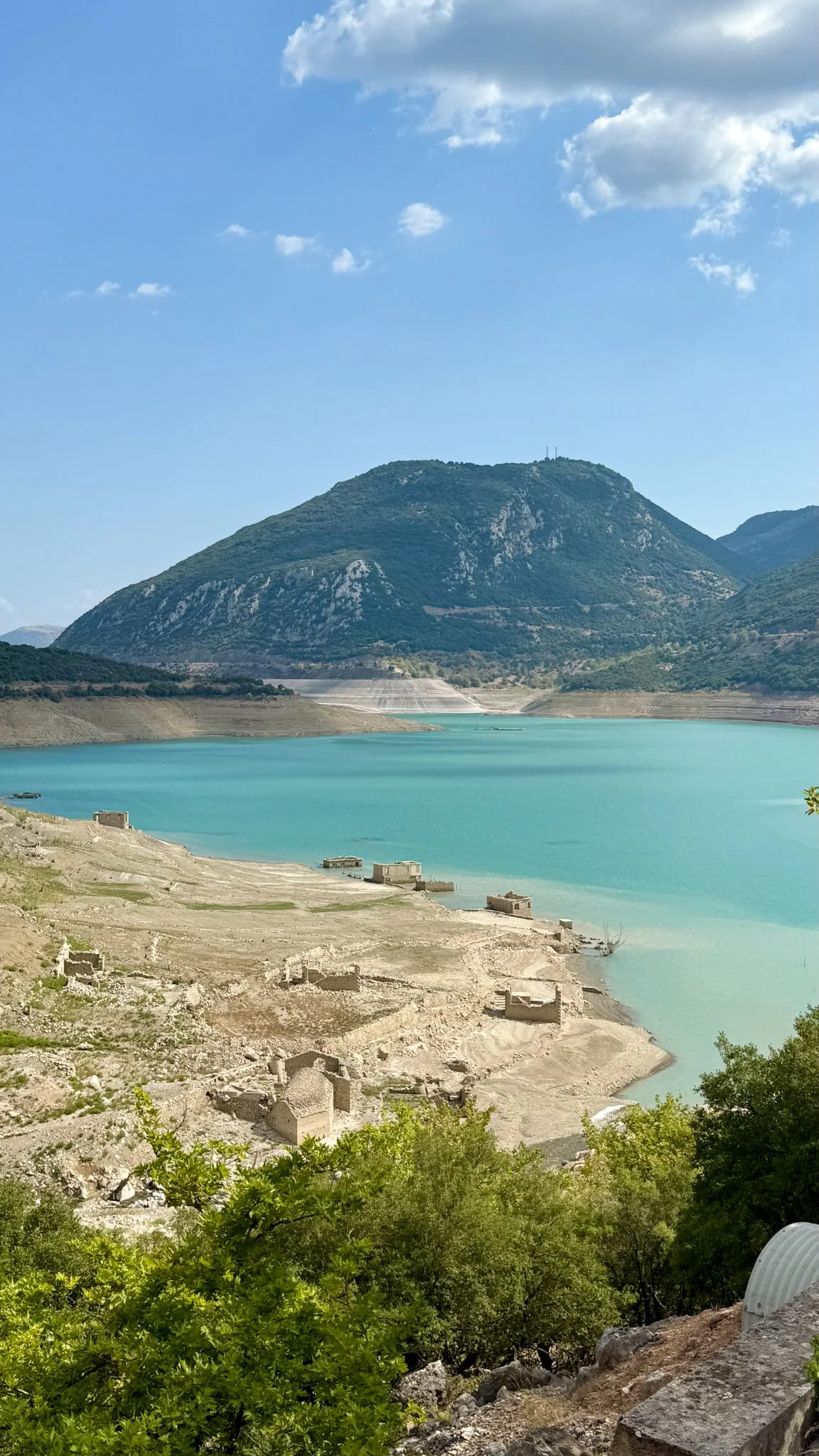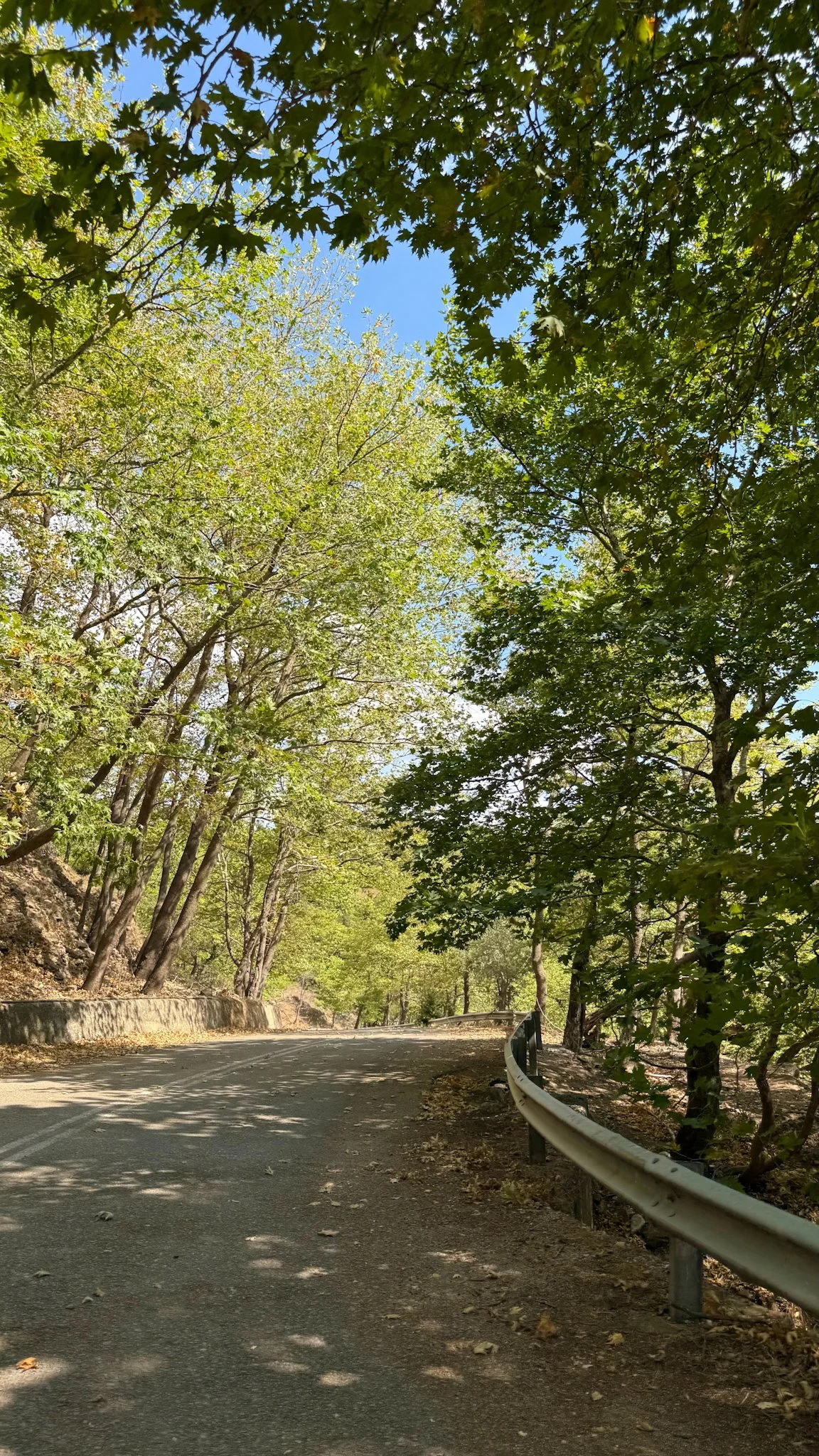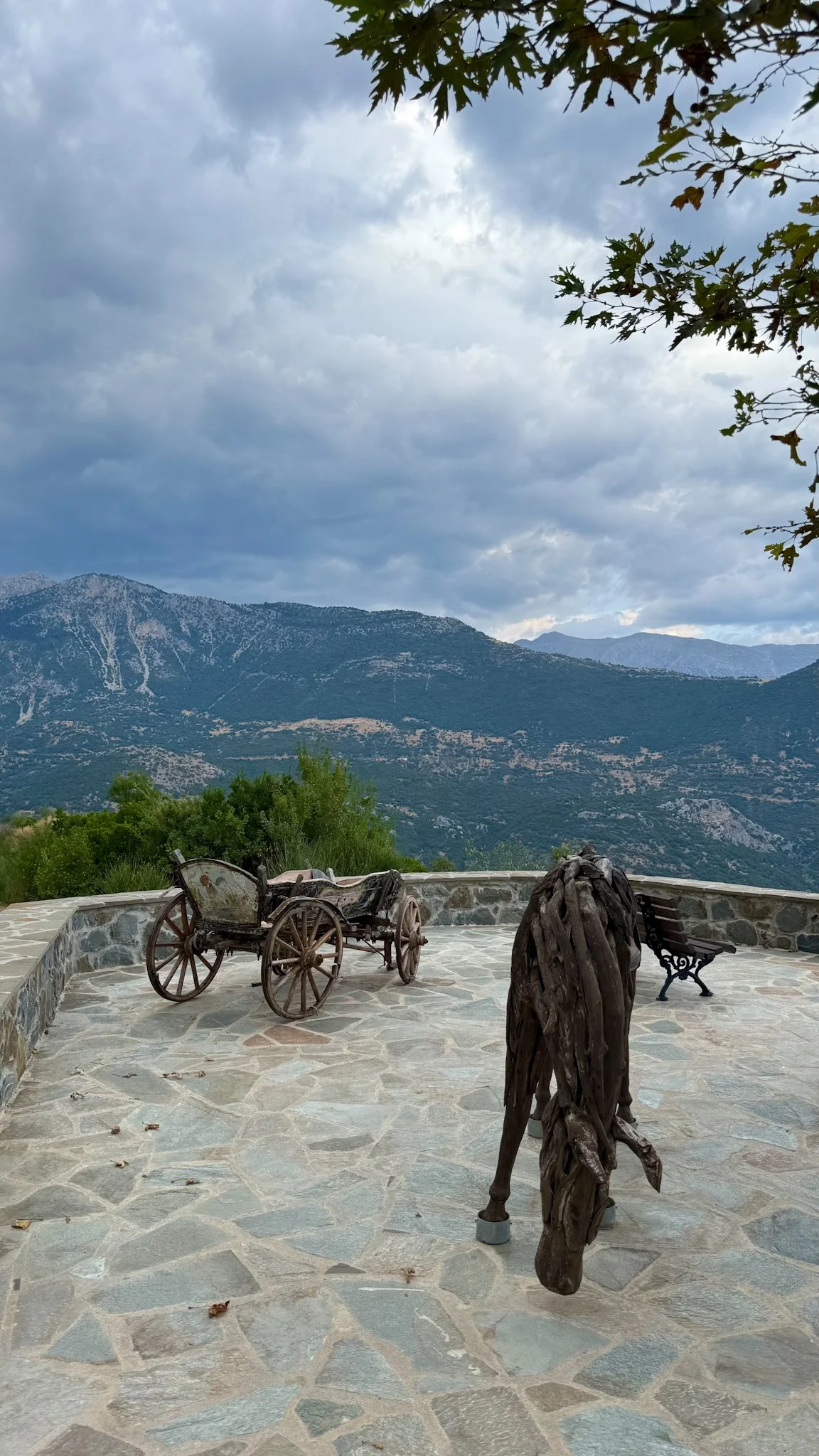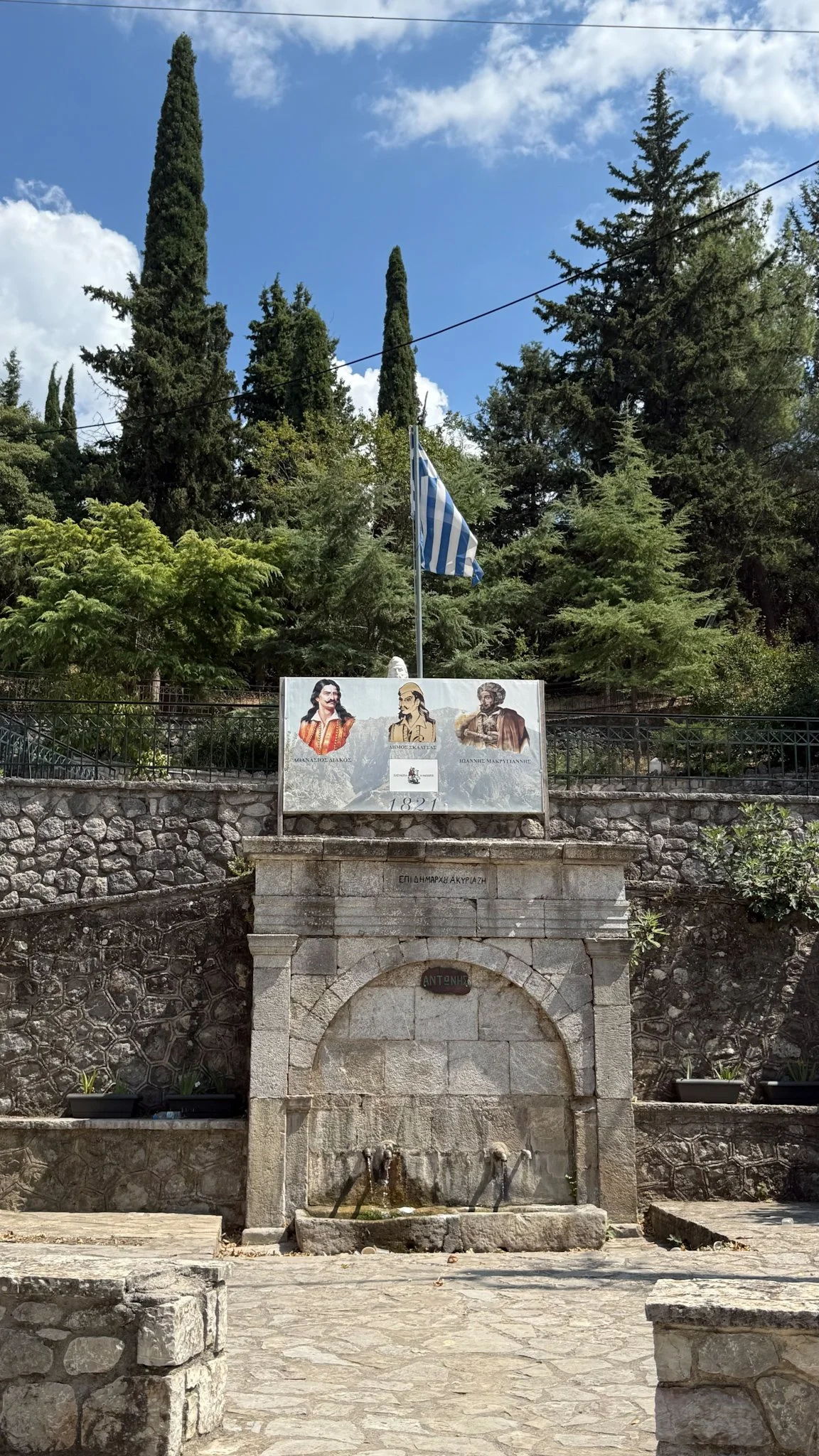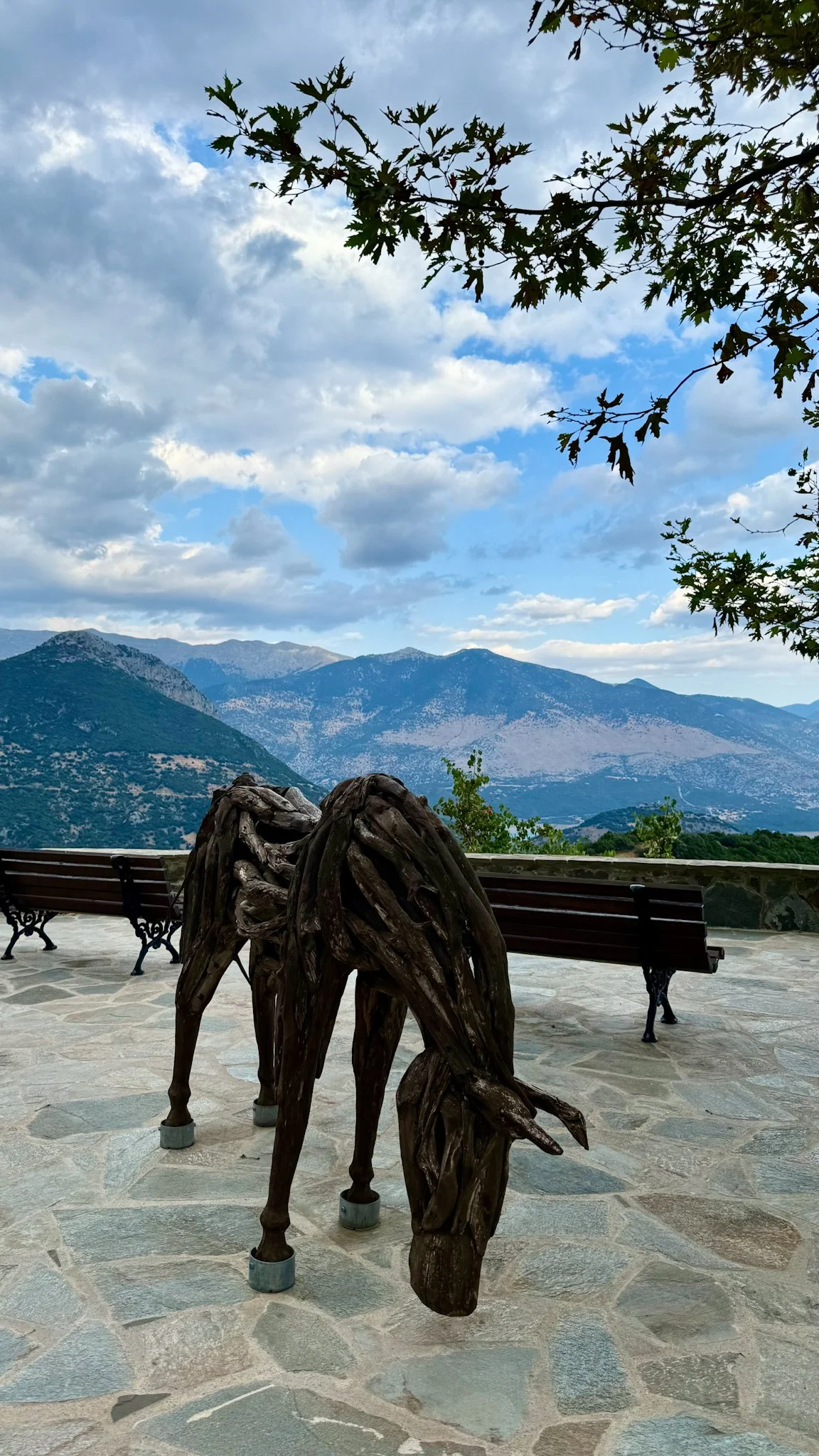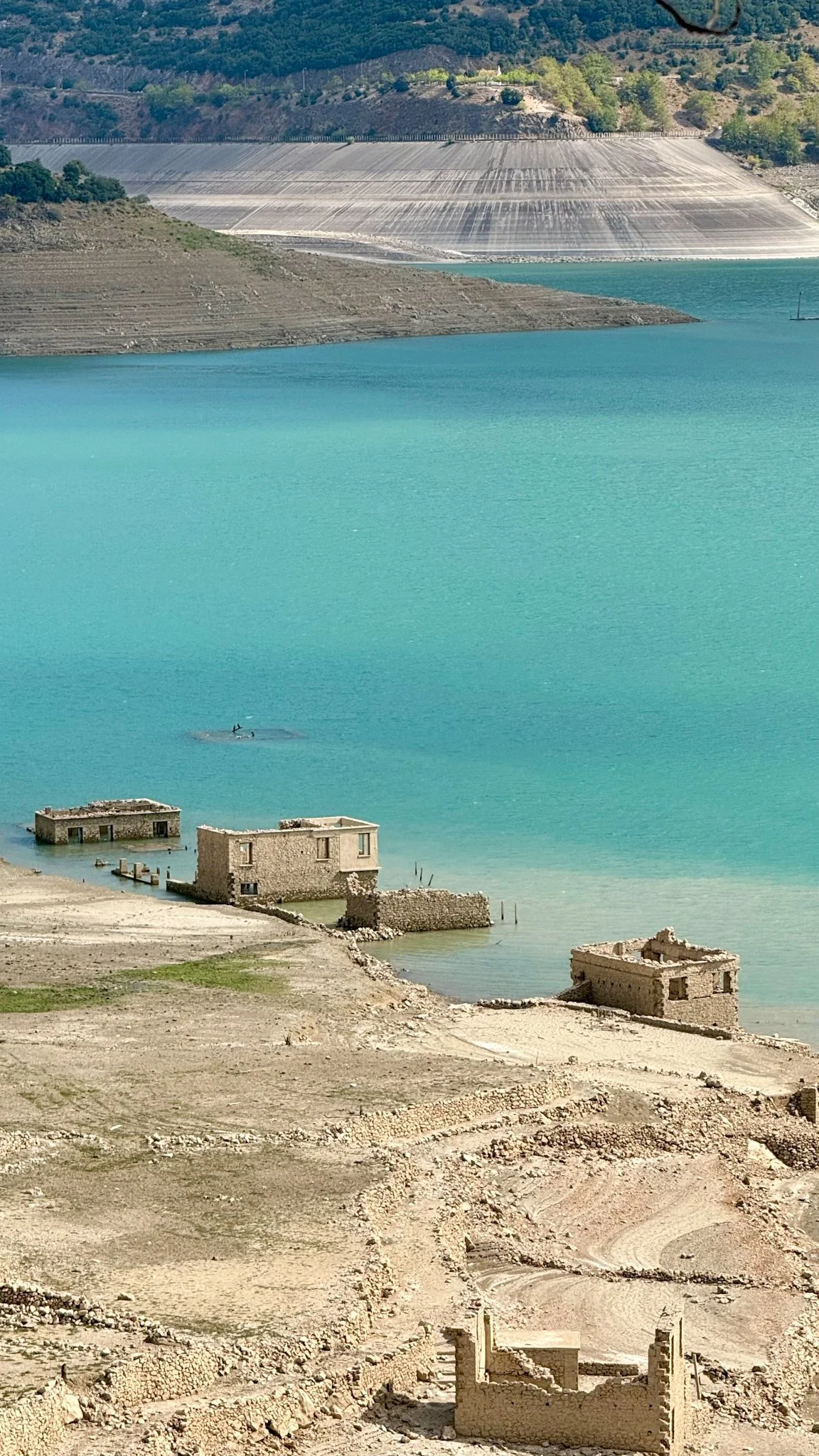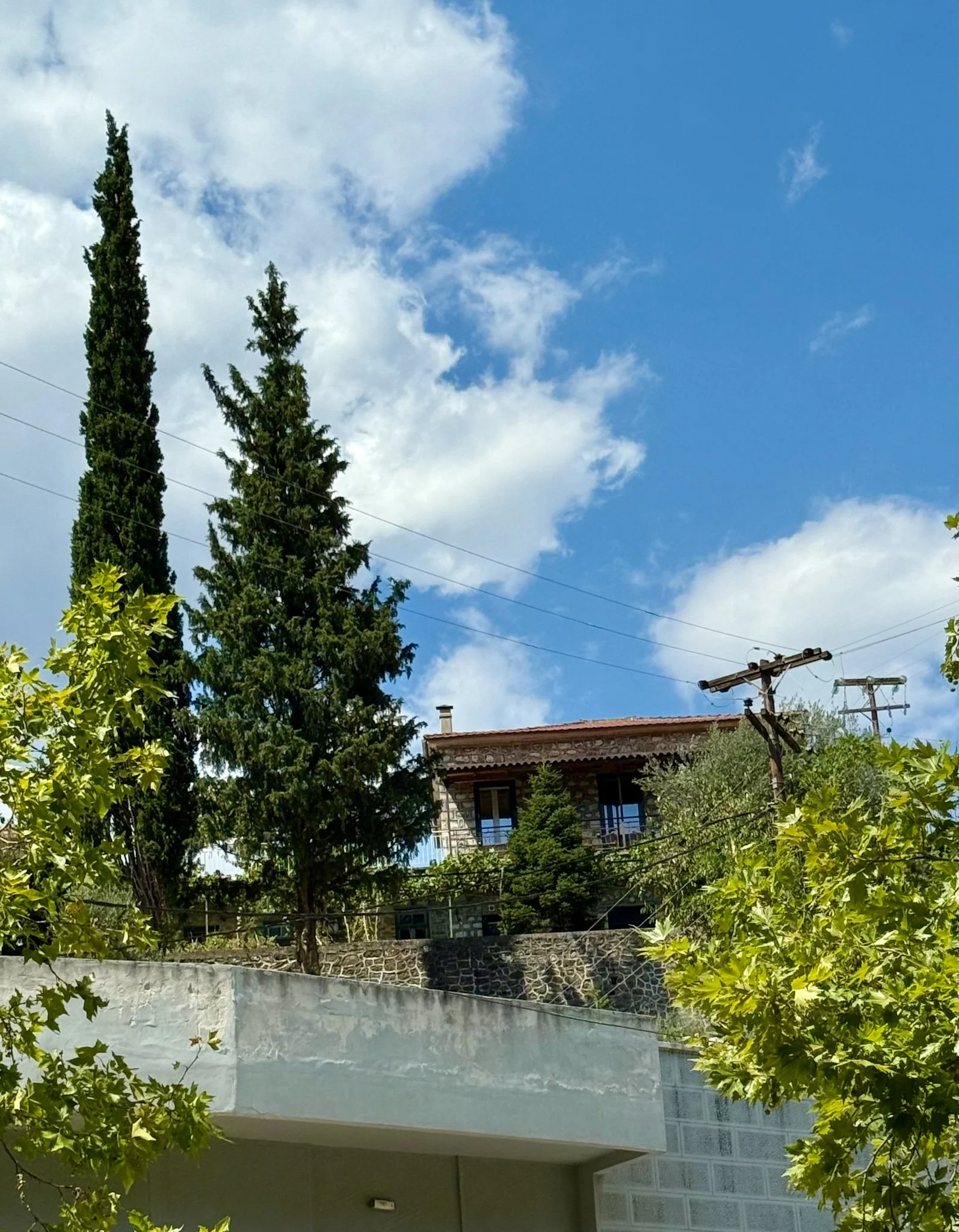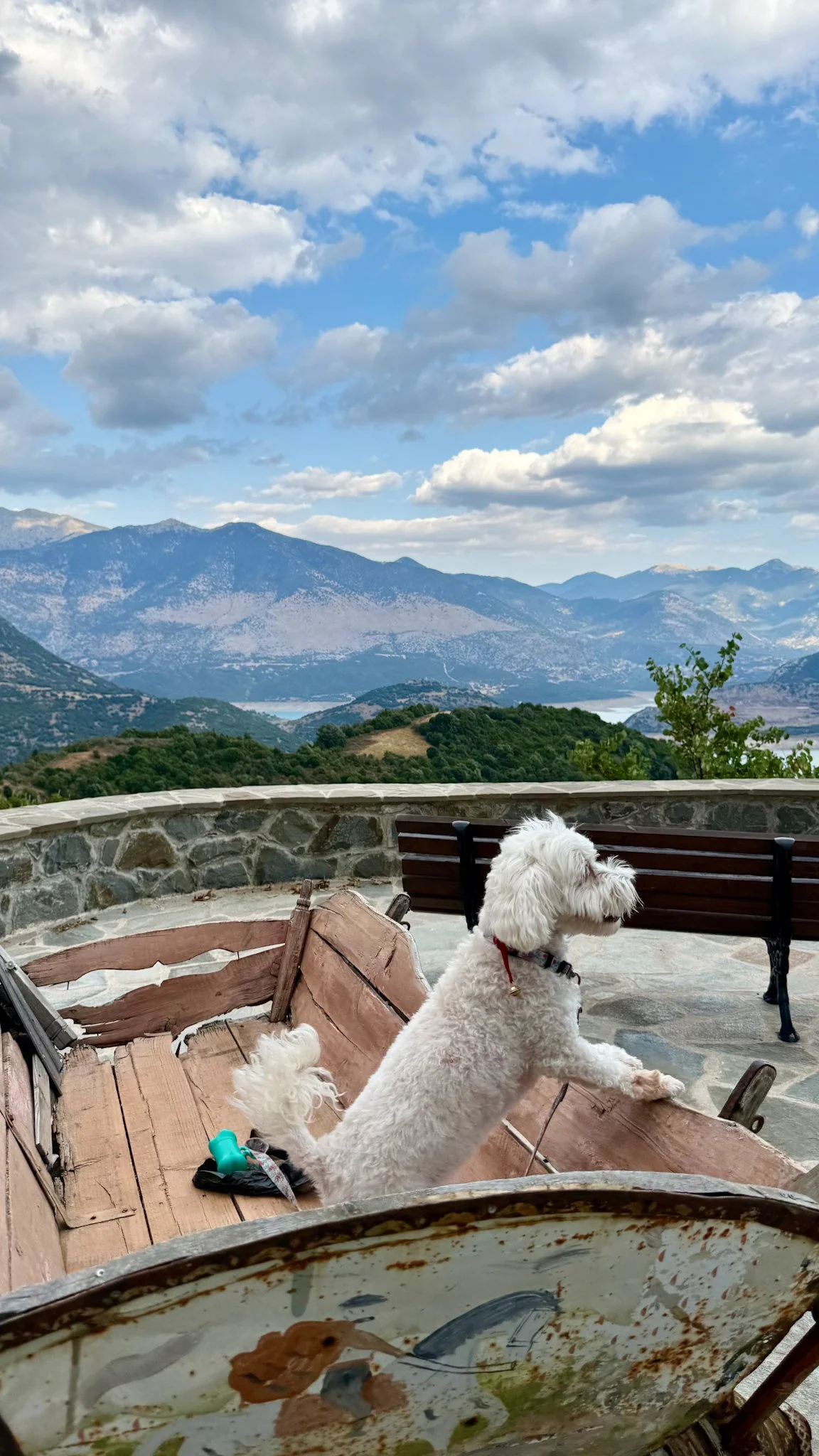The Village That Became a Lake: Tracing Family Ancestry Underwater at Kallio
There is something so special about visiting the home of your ancestors. Everything feels… different. The energy shifts. A part of you that may have felt detached suddenly awakens, especially when it comes to a town that was turned into a lake.
We go to Fokida every year. This is the family's long-awaited holiday. With my mother's roots in the region, we grew up spending time there. Marathias, Nafpaktos, Monastiraki, Efpalio, Eratini, the area of Fokida and Aitoloakarnania, all hold real, authentic, deeply connected Greek beauty. Traveling all over the world and living in the fast-paced, often hostile city life, it is a relief to come here, to feel allowed to relax, to turn your brain off, and enjoy doing nothing.
With that being said, reconnecting with this way of living, it all made sense to visit Kallio, the former village that was submerged to create Lake Mornos, which supplies water to Athens. The village was flooded in the late 1970s, around 45 years ago. This year, due to the severe drought of 2024, the lake's water levels had dropped significantly, revealing remnants of the village. Seeing the home of my great-grandparents, grandparents, and the house my mother and aunt had grown up in was nostalgic and moving. My brother and I had heard so many stories, but seeing it in person brought it all to life.
Our drive was about two hours from Eratini village. As we drove north up the mountains, the ocean views gave way to lush greenery and the grandeur of the mountains. We first stopped at the village of Lidoriki, where my mother and aunt had lived as children. It was exciting to experience such a change of scenery from the usual sea views. From Lidoriki, as we drove, glimpses of the lake began to appear. The turquoise waters contrasted with exposed sandy areas caused by the drought, showing how low the water had fallen. The more we drove around the lake and through the mountains, the clearer the remnants of the village became. It felt like discovering a long-lost ancient place, but it was only from 45 years ago.
As we continued driving, we stopped at a small church and cemetery overlooking the submerged villas where our great-grandparents were buried. The tiny church had keys hanging right on the door for wanderers like us, allowing us to step inside, light a candle, and then visit the cemetery. A silver door near the lake was locked, but I managed to find a way around it to get closer to the submerged homes. Though there was a faint sadness seeing the village that once was, the sight was stunning and familiar.
Having been disconnected from my culture and family while living abroad, it was refreshing to reconnect with the roots of my ancestors. Driving along the lake, through green mountains, tiny villages, and beautiful trees, we even had to stop for a shepherd and his goats to cross the road. Sonder was really felt at that point, realizing how different these people’s lives are compared to our own. We finished the scenic drive descending the mountain toward Monastiraki, where we enjoyed a sunset dinner and swim.
A strong sense of pride surged through me that evening. Pride in how deep our roots run, in feeling connected to a family we never met, knowing parts of them live within us. My brother and I heard stories of our grandparents and great-grandparents, told of their kindness and love. They lived lives full of love without much material wealth, proving that materialism is not a sign of a good life. What matters is how life is lived, keeping good people close regardless of circumstances. The courage and pride that flows through this bloodline is profound, and it is up to us to continue living by these values in modern life.
Nothing is quite significant, yet it feels important. This is something all modern people seem to be chasing. Something all modern gurus are trying to teach Westerners: the art of doing nothing, of allowing our nervous system to catch a break. People take courses and retreats on this, acting as if it is strange, because how can you truly feel happy and satisfied when being unproductive? Where is the value in just existing and enjoying life, instead of constantly being in a must-do mode? For Greeks, this is a way of living, and this is why travelers keep coming back, even though there are so many beautiful countries in the world, to experience this way of life again.
Of course, like everything, it has both pros and cons. Too much of this lifestyle can negatively affect other areas of life. As the ancient Greeks said, “παν μέτρον άριστον” — balance is everything. Everyone could take a lesson from this. Imagine how much happier people could be. Illnesses, mental stress, and chronic anxiety would decrease if people incorporated this into their daily life. The art of being present, thriving, enjoying, and slowing down. Being present with your loved ones, with the environment around you, and appreciating all of God’s creation. For me, this is living through the aesthete lens.
After a mentally challenging year and many life changes, it was difficult to stay in that way of living. However, returning to our second home in Fokida was the perfect twist. Not just a reminder, but living it again and ingraining it back into my subconscious, my body, and my daily life.
From this experience, anyone can learn the value of slowing down, being present, and cherishing the people and surroundings around them. The Greek way of living teaches us that happiness does not come from constant productivity or material wealth, but from connection, balance, and appreciation for the everyday moments of life.




